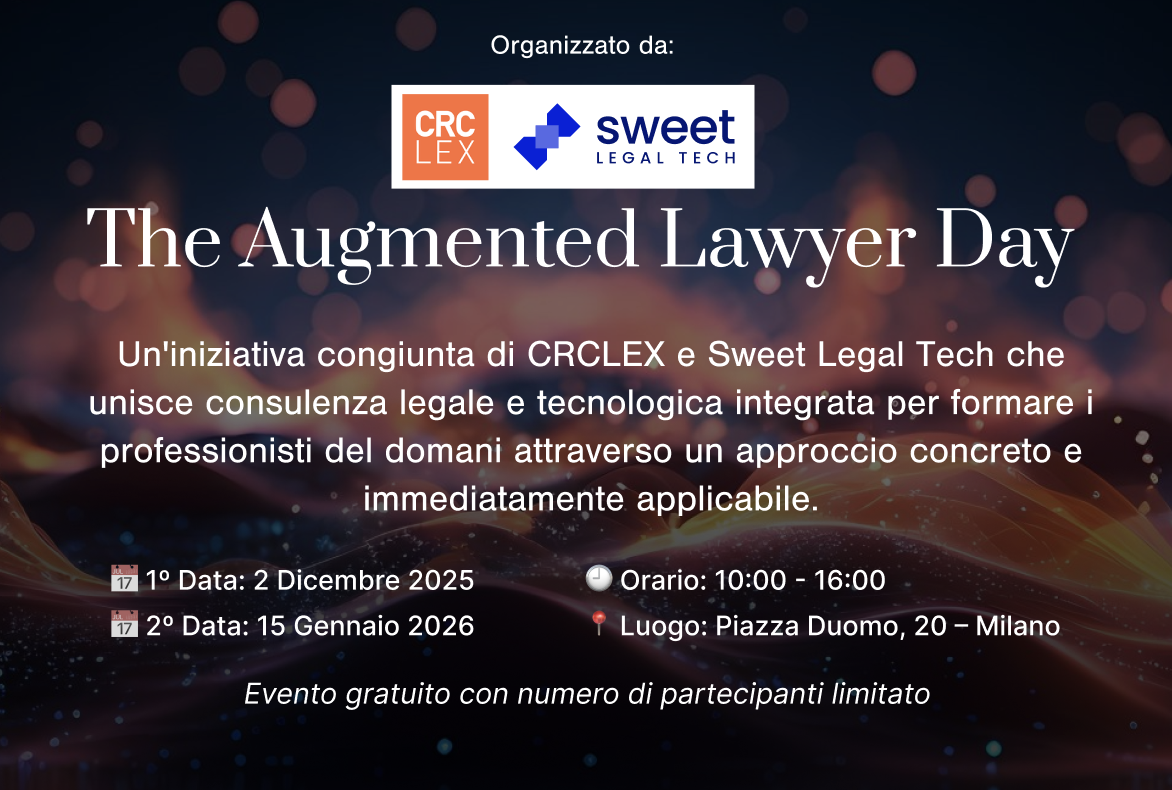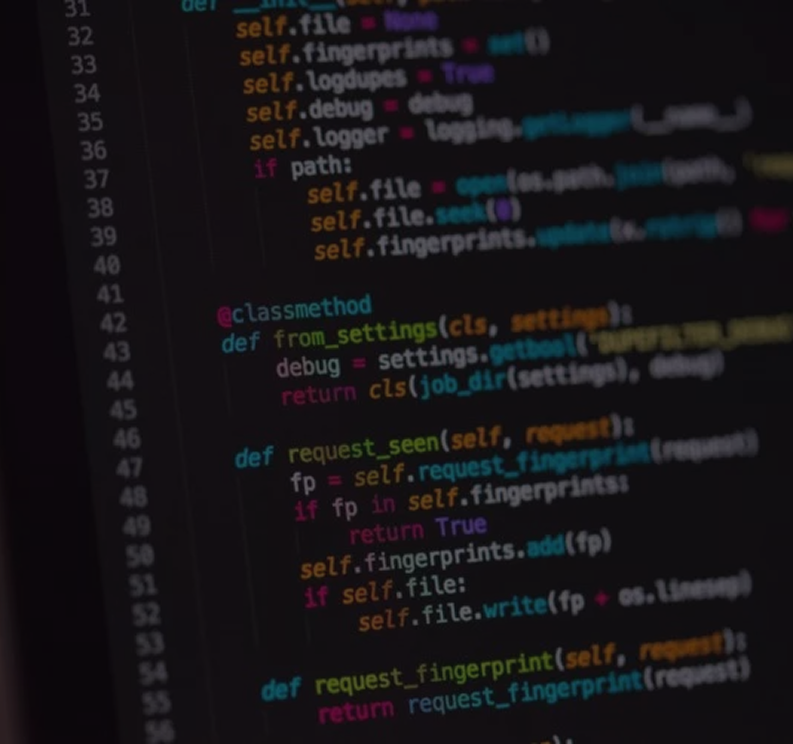The new Italy that is advancing: Iubenda
Within our space dedicated to innovative Italian companies (which we called”The new Italy that is advancing” to bear witness to the part of our country that, despite everything and everyone, knows how to innovate and grow (or at least tries) we are interviewing Andrea Giannangelo today. Iubenda his workhorse.

Andrea's story is that of a “child prodigy” since at just 10 years old he started developing websites and then doing everything: managing very crowded forums, graphics of all kinds, having a blog, working in a web agency, keeping a webserver at home... he already had all the genius of the entrepreneur. At 22 years old (recently graduated with honors in Economics from the University of Bologna!) Today he finds himself CEO and mastermind of”Iubenda”, a startup founded together with Domenico Vele (38 years old) - Software Engineer - and Carlo Rossi Chauvenet (29 years old) a lawyer and teacher at Bocconi. A strong and diversified team that has convinced investors such as the Digital Investment SCA SICAR fund (of which DPixel is advisor), Andrea Di Camillo (Vitaminic, Banzai, Quantica) and Marco Magnocavallo (Blog). And that has led Iubenda to be chosen among the 20 startups selected for the Mini Seedcamp that is taking place in London just these days.
With the valuable support of our Simona Bielli we went to see him.
Andrea, what is' Iubenda 'and why has she made so much talk about herself in recent months?
Iubenda is a web application that allows anyone who owns a website to provide it with a Privacy Policy (Privacy Policy) through an automatic generation process that consists of only three steps.
In a nutshell, Iubenda allows you to generate a privacy policy document without being legal experts, allowing those who own a website to describe the services they use on the same (e.g. Google Analytics). The Privacy Policy is then integrated into the site through an entry code, which shows an icon containing a link to the privacy policy.
This is precisely the revolutionary nature of Iubenda: not only is there no tool in the world that allows anyone to generate a Privacy Policy, but there is no tool that allows you to generate any legal document thanks to technology!
A web designer like you certainly knows these issues very closely, but what is the driving force that made you think about creating Iubenda?
Actually, Iubenda is not the first project I launched myself into. In addition to having emulated the Play Station as a child, from the age of 10 onwards I have done much more. In recent years I have followed two ambitious projects that then did not prove decisive. However, previous experiences have served to learn.
At 17, together with a friend, I tried to found a free web hosting provider on the model of Altervista. At 19 I tried again with a new idea: an innovative e-commerce of t-shirts, produced by high-level designers, based on the concept of scarcity. Basically, those who came first paid less. Everything was thought out and prepared to perfection, but designers and cartoonists wanted to be paid in advance and I didn't have a penny.
Finally, in January 2009, in a week I create webtelevideo.com, which reprints the TV schedule and shows it in a readable way. Fantastic, today webteletext has almost 200 thousand pageviews per month! At that time I was taking my first exams at the university (Economics), including those of law that gave me a rather serious approach in carrying out the webteletext project. Writing the Privacy Policy was one of the headaches to be solved. It was this episode that inspired me: I felt this need firsthand, the market seemed ready (the processing of personal data was very homogeneous, services such as Google Analytics had monopolized the market vertically), so I worked hard to create a tool that could generate a Privacy Policy. And here is Iubenda!
So it's a project that started more than two years ago..
Yes, June 2009, but several events have happened in the meantime. Initially I had worked on it with three peers; a team that had already fallen apart in February 2010, producing little or nothing.
I believed too much in Iubenda to give up. This is why I tried to visit some Web Agencies in Bologna to look for people interested in co-developing the project. Nothing here either. So then I decided to take the path of Venture Capital and after having been thoroughly informed about everything that might concern pitching, VC, Startups & Co, I contacted Gianluca Dettori (founder of DPixel). Obviously I liked my idea, so much so that starting from the month of May 2010, also thanks to that meeting, the business project began to take shape. I had the patience to know how to wait for the right moment and I focused on building a relationship with future investors. In the meantime, I have composed the team and developed the idea.
You are telling us that in these early stages it is very important to build a relationship with an investor who can help you develop your business idea.. How important is this support compared to economic support?
Both are essential. All our investors — the Digital Investment SCA SICAR fund (of which DPixel is the advisor), Andrea Di Camillo, Marco Magnocavallo, as well as Stefano Bernardi who has invested a small share in our company — provide valuable input in terms of feedback and advice, contacts and credibility. All decisive elements that, together with capital, are essential to launch a business.
In your opinion, what was the strong point that allowed you to get in touch and arouse the interest of these investors?
Having a good product with excellent market potential certainly plays an important role. In my case, an email, studied and well written, simple, was enough to intrigue Gianluca Dettori. At that time I didn't have a team yet, so the only elements I could focus on were me with my idea.
On the other hand, with Marco Magnocavallo, I got in touch through Facebook. I have always tried to make my value perceived in every comment, in every intervention and this has paid off.
One thing I recommend is to cultivate the relationship with the investor and give him elements to bet on you. After the first meeting with Gianluca Dettori, I have never stopped (not even before in reality...). I toured Italy for a few months to understand if the problem was perceived, I did a survey on the interest of potential customers and their willingness to pay, I used Balsamiq to do the first tests on need and interface. In the meantime, I have taken 11 exams at the university, keeping an average of 29/30...
Added to this effort was the search for a valid team that could carry out this project. The team was formed and my tenacity won out. After a few months, investors started to trust me, they understood that I was serious.
So in the end it rewarded persistence...
Probably what struck me, in addition to the project, of course, was the seriousness that I have always shown in this project. Iubenda imposes on me a discipline that shapes my days; it is an almost all-encompassing commitment, that you take to bed, that disturbs your sleep...
Andrea, is there anything else you would like to add?
I probably said it between the lines, but the team is crucial. As good as one may be, carrying out an ambitious project requires the work and collaboration of several subjects. It is people who make the difference and I have also learned it from the failure of some previous projects. The current team consists of extraordinary people, Domenico Vele and Carlo Rossi Chauvenet, with different skills and equally diverse places of origin. Yet we are close-knit, there is understanding and this will certainly be a key to success.
Conclusion
At least three important messages emerge from Andrea's experience:
1) the importance of previous experiences, including failure. Before Iubenda, Andrea experimented and collected different experiences, collecting good and bad results, making mistakes and learning new things. All this certainly helped him to get off on the right foot in his Iubenda project.
2) you don't improvise entrepreneurs and you don't improvise a pitch. Before knocking on a VC's door, he informed himself, he built a relationship with patience, he tried to get on the radar of potential investors. And he didn't stop at the first difficulties, showing tenacity and giving investors good reasons to believe in him.
3) Age doesn't always matter: you can be good and mature even at 22. But it must be supported by experience (his lucky companions are 30 and 40 years old respectively).
AUGUST 11, 2011 | Of Alberto Onetti
Read the original article: https://siliconvalley.corriere.it




